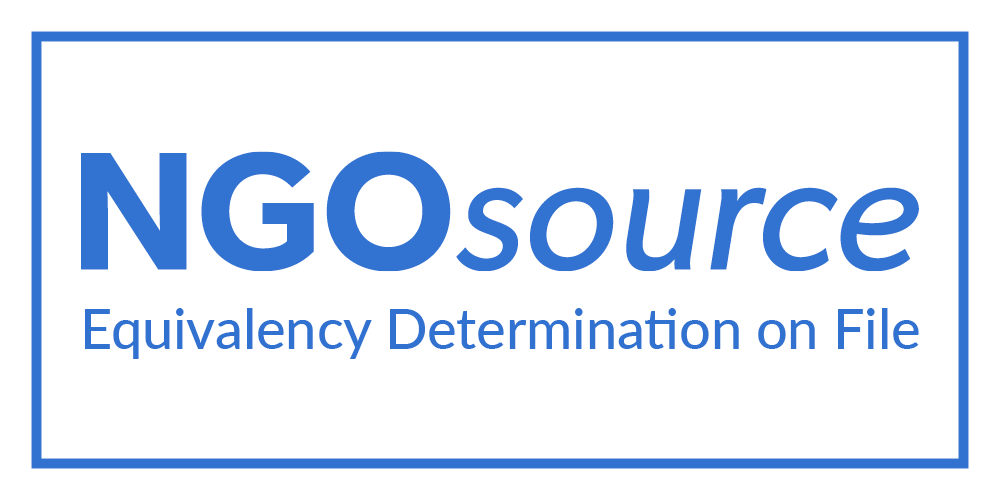Macro Solutions for Women, the People and the Planet:
Women’s Working Group on Financing for Development Key Messages and Inputs[1]
No country or region alone can face the current multidimensional crises: COVID-19, health, financial, economic, debt, humanitarian, environmental and multilateralism. These challenges have exacerbated and deepened inequalities, showcasing now more than ever structural challenges that need to be urgently addressed. Because of the sexual division of labor, women have been subsidizing the entire global economy by means of unpaid domestic and care work. This has been underscored during the COVID pandemic with the disproportionate number of women as care-takers subsidizing national economies. The responses to the COVID-19 crisis have triggered a regression in ensuring women’s human rights and stressing their precarious conditions, more pronounced in those cases of multidimensional discrimination.
Gender equality and respecting, guaranteeing and protecting women’s human rights are more relevant than ever. The interconnectedness in a globalized world surfaces macro challenges that need to be addressed at the macro level, so that those solutions at the mezzo and micro level have the optimal conditions to thrive. Moreover, without macro solutions, those efforts at local, national and regional level may not suffice to reach the sustainability level that is needed to deliver the promises of a sustainable development process in which no one is left behind, and in which there is both accountability and redistribution in the case of those who are too far ahead.
The present document emphasizes a list of Macro Solutions for Women, the People and the Planet, with the hopes that a common agenda to ensure gender equality and women’s human rights are placed at the center of our collective efforts. It is based on the Civil Society on Financing for Development Group (CS FfD Group) call for Global Economic Solutions Now![2] Our call includes as cross-cutting principles:
- Human rights, gender equality, wellbeing, social-economic and environmental justice
To promote the interrelation and progressivity of human rights of all people in a healthy environment, with accessible global public goods respecting planetary boundaries. Structural inequalities and environmentally destructive behaviour are not natural, but political choices. Our long term planetary and human wellbeing continue to be conditional to systemic transformations for socio-ecological and financial justice: on the way we produce and consume, on how the global economy and global and sexual division of labour are structured.
- Socio-economic transformation and a just, equitable transition for people and the planet
To provide the necessary fiscal, judicial and policy space needed to ensure a decolonial, feminist and just transition for people and planet. This means promoting a rebalancing of the global economy with more vibrant, inclusive and circular local/national economies; promote decent work and responsible business conduct; advance ecological resilience; reduce resource consumption; restore biodiversity; and move away from extractive, discriminatory, military, racist and androcentric economies that erode the ecological basis of our collective wellbeing.
- Democratization of global economic governance and inclusive participation at all levels
To ensure democratization of global economic governance, recognizing the right of every country to be at the decision-making table, and not only those with concentrated power or resources. A new global governance should promote national economic sovereignty and common but differentiated responsibilities on global commons. At every level of decision-making, meaningful participation of rights-holders should be enhanced and guaranteed.
We call for the following: (full description below)
1) A New Global Economic Architecture that works for the People and Planet, under the auspices of the UN:
International Economic Reconstruction and Systemic Reform Summit
2) Debt cancellation, SDRs issuance and Sovereign Debt Workout Mechanism at the UN
3) Establishing a UN Tax Convention for redistributive justice, eliminating regressive taxation and illicit financial flows.
4) Creation of a Global technology assessment mechanism at the UN
5) Fully Assess development impacts of current trade and investment framework
6) Assess systemic risks posed by unregulated or inadequately regulated financial sector instruments and actors
7) Review development outcomes of PPPs and ‘private finance first’ approach
8) Review of the ODA framework
It must be underscored that the macro-economic point of entry to the gender equality agenda refers to the subsidy of the entire global economy derived from the unpaid domestic and care work that falls on the shoulders of women. No siloed, sectorial or empowerment activities will suffice if this agenda is not properly mainstreamed along with the recognition of women’s human rights. The recognition of the value generated by women and communities in the form of unpaid labor should lead to comprehensive public policies regarding time use and the sexual division of labor, but also to question the extractive logic in relation to natural resources that the orthodox economy has on the environment and to so-called “reproductive” work. Addressing this agenda requires in itself articulated measures[3]. To promote a macro-economic approach to gender equality means to shift the priority from the exchange of financial flows and goods, to an economy that puts at the center people and their wellbeing, in all the diversity of human life and across the life cycle. This will allow to promote differentiated measures for every group of population in accordance with their needs and interests.
Expanded description of a call for Macro Solutions for Women, the People and the Planet:
1) To promote a New Global Economic Architecture that works for the People and Planet, under the auspices of the UN: International Economic Reconstruction and Systemic Reform Summit. The Summit should work towards global consensus on a new global economic governance architecture that could foster systemic reforms while promoting human rights, gender equality, social equity and environmental justice. Within this Summit governments will be able to discuss in a democratic setting the ideas on a new global economic architecture.
2) Debt cancellation and Sovereign Debt Workout Mechanism at the UN
Public and private debt reduce the fiscal space for governments to ensure the maximum amount of resources for gender equality and women’s human rights as well as sustainable development. For decades, conditionalities (including austerity measures) have depleted the capacity of States to ensure health and education systems, as well as social protection mechanisms. Economic shocks linked to debt have proven to increase the burden of unpaid domestic and care work, because the capacity of social expenditure is reduced, and women amortize those shocks.
Specific proposals:
- Permanent cancellation of external debt payments for up to four years to all developing countries in need without penalties;
- Provision of additional, emergency finance without creating more debt, nor conditionalities;
- Protection of developing countries from lawsuits when ceasing debt payments at national and multilateral levels;
- A debt relief initiative to bring developing country debts down to sustainable levels and which considers countries’ long-term financing needs to pursue the SDGs, climate goals, and human rights and gender equality commitments;
- Agreement on a permanent process under UN auspices to support systematic, timely, and fair restructuring of sovereign debt.
3) UN Tax Convention
The absence of redistributive justice redirects negative impacts on the shoulders of women. Regressive taxation measures and illicit financial flows (especially corporate tax abuse and tax havens, as stated by the CEDAW Committee) reduce the fiscal space for governments, who then are not able to spend the maximum amount of resources to ensure gender equality and women’s human rights. This increases the burden of unpaid domestic and care work. Specific proposals:
- A truly universal, intergovernmental process at the UN to comprehensively address tax havens, tax abuse by multinational corporations and other illicit financial flows that obstruct redistribution and drain resources crucial to challenging gender inequality.
- Taxing income, wealth and trade should support the internationally agreed human rights frameworks (to mobilize the maximum available revenues). Tax abuse and tax avoidance should be considered under the extraterritorial obligations of states towards other states. Abusive tax laws and rules hamper the enjoyment of human rights via blocking financing.
- International tax rules exacerbate inequalities within and between countries. Therefore, taxing rights must be determined by countries.
- Regulate and control monopolization of sectors. e.g. care, in digital services and infrastructure.
- Curb ‘tax wars’ – tax competition (eliminate tax incentives, set a progressive model for progressive tax treaties, consider minimum corporate tax rates, ensure equity and control over withholding taxes).
- Establish an extension of a universal and multilateral tax transparency policy platform (ABC policy trio adopted by tax justice movement), which can curb ‘offshoring’ of wealth and the shifting of profits including the regulation of trusts and foundations, and enable governments to maximize available resources and redistribute them in support of realization of women’s rights.
- Monitor and evaluate impact of IFFs (channels of flow and scale) – the vulnerability of countries and the impact of the rights of women nationally and as a spillover impact.
4) Global technology assessment mechanism at the UN
Technologies pose a two-sides challenge in relation to gender equality. On the one hand, the technology gap has been addressed in many spaces. On the other, it is not always mentioned, and that is the negative impact the lack of regulation on technologies have on women. Proposals:
- Broad, transparent, inclusive, accessible and participatory deliberations on the current and potential impacts of digital technologies on the environment, the labour market, livelihoods and society, to ensure governance over these.
- Develop horizon scanning and foresight capacities, by means of identifying options beyond technological solutions. Governance measures on technologies is not just about regulation but ensuring prioritizing of the common good and it taking precedence over profits.
5) Assess development impacts of current trade and investment framework
Through free trade and investment agreements and treaties (bilateral, plurilateral or multilateral), many state policies have been liberalized, granting free movement to capital, unlimited growth and power to multinational corporations and heavy dependency on the Global Value Chain (GVC). This occurs more often than not, at the expense of small and medium size businesses, local and domestic industries and the regulatory capacity of the state, everywhere in the world but especially so in developing countries, to the detriment of the environment, human rights and gender equality. This pandemic has revealed firstly, the precarity of the GVC, with its collapse around the world; secondly, the myth of “free trade”, as countries introduced endless trade barriers and began hoarding of many goods and supplies immediately when the pandemic started, at a time when the flow of many of these necessary good and supplies should be ensured more than ever so people can get access to PPEs, medical supplies and food; and finally, at a time when governments should be having the necessary and relevant domestic policy space to determine how best to tackle and deal with the pandemic, many governments are fearful of the consequences from the trade and investment regimes their actions can bring. Proposals are:
- To ensure developing countries retain maximum policy flexibility in their trade and investment policies there should be no further negotiations or signing of any binding trade and investment agreements including at the WTO;
- A moratorium on Investor-State-Dispute-Settlement (ISDS) cases, and non-implementation or violation of current trade and investment commitments, including Intellectual property rights rules through the TRIPS and TRIPS plus agreements, if these conflict with public policy objectives including economic and health objectives, during the pandemic;
- To promote a different trade and investment multilateral system that does not create dependence on the GVC for every goods and products to be produced; where countries can determine a more tailored supply system both in domestic policy spaces and through international exchanges, solidarity and cooperation.
6) Assess systemic risks posed by unregulated or inadequately regulated financial sector instruments and actors
The current economic recession is the result of a hyper-financialization of development and the global economy, of which financial institutions have been active promoters, including by adding conditionalities attached to austerity measures, blocking the possibility of any real development. This dynamic has augmented inequalities, including women’s and poor people’s structural limitations in gaining access to finance. They also magnify speculative flows, triggering increased financial risks, financial market volatility and liquidity shortages – for which central banks needed to intervene with billions of dollars during the current pandemic. Our proposals are the following:
- Agree on adequate regulation and supervision of financial institutions, credit rating agencies and hedge funds through a UN framework;
- A global ban on short selling among all markets and increase regulation/surveillance of high frequency trading;
- A global agreement on the importance of capital account management to prevent capital flight, limit speculative trading and arrest declines in currency and asset prices;
- A new allocation of Special Drawing Rights (SDRs) needs to be agreed, commensurate with the level of need among developing countries;
7) Review development outcomes of PPPs and ‘private finance first’ approach
Alliances with the private sector without clear human rights, gender equality and environmental integrity provisions have been aggressively promoted to “enhance implementation” of the Sustainable Development Goals. This, while paying deaf ears to the recommendations of several UN Rapporteurs on poverty and human rights, on debt, on indigenous people’s rights and others. Public-private partnerships and other modalities have undermined the public sector, reduced the benefits for populations, left uncovered crucial sectors in dire need of investment (under the argument of being “high risk”) without taking into consideration the longer-term benefits, and actually led to mega-projects with questionable environmental, social and economic impacts. We propose:
- The World Bank Group’s Maximising Finance for Development (MFD) approach should be rejected. It implies a problematic ‘private finance first’ attitude to development finance and rather unrealistic assumption that private finance will appear to fill the financing shortfalls. While donors and institutions promote a ‘Billions to Trillions’ narrative and blended finance, whose development impact is yet to be proven, the reality is they are not living up to their own commitments and are instead regressing.
- To reaffirm the centrality of public policies and investments. Governments should declare a moratorium on funding, promoting or providing technical assessment for PPPs and ‘private finance first’ approaches until an independent review into their development outcomes is completed.
8) Review of the ODA framework
While structural challenges are addressed at the global level, ODA is still a means to promote gender equality. Although the active presence of the feminist and women’s movement is the main indicator of the steady increase of gender equality measures in a country, and although we are in a time where more funding has been allocated to gender equality, it has to be said that only 1% of it is allocated to feminist and women’s organizations, networks and movements.
- Call on DAC members to immediately reverse the decline in ODA as a share of GNI, fulfil and where possible exceed the 0.7% target for ODA in the form of unconditional grants and technical support;
- Call on donors to ensure that development aid is not diverted but reinforces humanitarian response to the crisis and to ensure that emergency responses are aligned with developing country priorities without conditionalities. We also call on donors to uphold the integrity of ODA and their development effectiveness commitments.
- To mainstream human rights, gender equality and environmental integrity in ODA frameworks. To channel more international cooperation funds and research efforts to foster, systematize and replicate feminist economics experiences, to fund women and feminist organizations, movements, networks and collectives. To promote mechanisms ensuring women’s meaningful and substantive participation in national and international decision-making processes on economic and financial policies.
- To surmount false solutions such as ‘Women’s financial inclusion’, which are driving women to indebtedness situations that undermines their capacity to self-empowerment. By promoting structural conditions for wellbeing and ensuring women’s human rights, “empowerment” will be a consequence.
[1] The WWG on FfD is an alliance of women’s organizations and networks which advocates for the advancement of women’s human rights and gender equality in the Financing for Development related UN processes.
[2] https://csoforffd.org/global-economic-solutions-now/
[3] By means of distinguishing paid and unpaid work, it is easier to expand the analysis to precarious work in the informal dimension of work, as well as the formal work. The making of precarious sectors due to the entrance of women into sectors prior dominated by male presence is a phenomenon that affects not only women, but also the men employed in those sectors: there is no equalizing towards higher standards, but to lower standards. Circular economy at the local level needs to be linked to larger processes that require democratization -such as food systems, strengthening unions, and setting in place the condition to universal social protection floors. A change in the legal systems, a promotion of transparency and accountability, of institutional capacity and coordination, as well as to facilitate a bottom-up participation of relevant actors. The “right to care,” a right recognized in the LAC region in the Montevideo Consensus, needs to be acknowledged widely, emphasizing the right to care as well as the rights of care-takers, and the shared responsibility between the State, the private sector, communities, families, men and women. This means setting in place the infrastructure, public policies and norms, as well as a shift in time use, so that this transformation can happen. Evidently, these measures place at the center the rights of children, people with disability, the chronic ill, the elderly, and others who require care, without antagonizing with women’s human rights (because up to this moment, women have been seen only as care-takers, without their rights being acknowledged).


